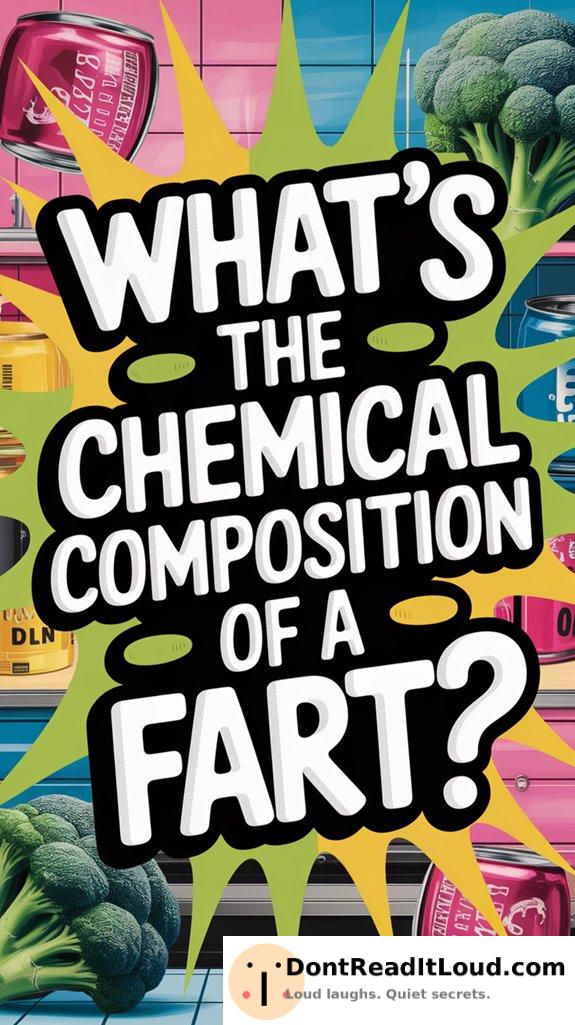
When you pass gas, you release a blend of gases including nitrogen, oxygen, carbon dioxide, hydrogen, and occasionally methane. Most originate from swallowed air or gut bacteria breaking down food. A small amount of sulfur compounds, such as hydrogen sulfide, cause the unpleasant smell. What you eat greatly influences the mix of gases produced. Stick around to learn how these gases develop, what makes them smell, and other interesting details.

Every time you pass gas, you’re releasing a complex blend of gases produced by your digestive system. This mixture is more than just swallowed air; it forms through various chemical reactions in your gut. When you eat, digestion creates gases as byproducts. While some of this gas is swallowed air, most comes from bacteria breaking down food in your intestines. This process leads to gas release—sometimes noisy, sometimes quiet, but always a normal part of digestion.
You might wonder what exactly makes up this gas. Most of it’s odorless and mainly includes nitrogen (about 20-90%), oxygen (0-10%), carbon dioxide (10-30%), hydrogen (0-50%), and methane (0-10%). Nitrogen and oxygen come from swallowed air, while carbon dioxide, hydrogen, and methane are produced by gut bacteria. On their own, these gases don’t smell, which is why most gas passes unnoticed.
Sometimes, though, a particularly smelly fart stands out. That’s due to small amounts of odor molecules. These make up less than 1% of the total gas but are strong enough for your nose to detect. The main offenders are sulfur-containing gases like hydrogen sulfide, methanethiol, and dimethyl sulfide. Gut bacteria produce these odors when breaking down proteins and sulfur-rich foods. Foods like eggs, broccoli, or onions can make your gas smell stronger for this reason.
The mix of gases you release depends on your diet, your gut bacteria, and even your health. Eating a lot of fiber usually results in more hydrogen and carbon dioxide, since your bacteria digest complex carbs. If your gut has bacteria that produce methane, your farts may contain more methane, which is odorless but flammable.
Passing gas simply shows your digestive system is working as it should. Everyone produces gas and releases it several times a day. By understanding the chemical makeup of a fart, you get insight into the complex activity inside your gut—and why some farts are silent and smelly, while others go unnoticed.
Conclusion
When you pass gas, you release a combination of nitrogen, hydrogen, carbon dioxide, methane, and small amounts of sulfur compounds. The sulfur compounds are mainly responsible for the familiar odor. Factors like your diet, gut bacteria, and even swallowed air influence the specific mix of gases. So, next time you notice that scent, you’ll know what’s causing it!



